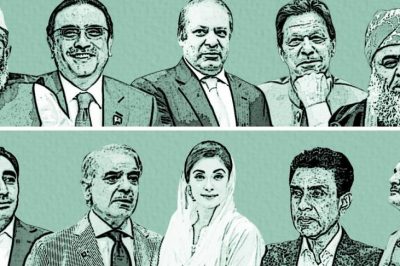Discourses bring order and cooperation in social structure. They are the ideas and beliefs on which a social structure stand. Discourses wield power, legitimize the social order, and can both unite and destroy society. Pakistan, a nation born from the discourse of the two-nation theory, presents a fascinating case study.
As a power source, religion united millions to establish the state in 1947. The state of Pakistan relies on this discourse for existence. Discourses have positive and negative impacts; they are not inherently right or wrong. But their purpose and source matter. Discourses have played both negative and positive roles in Pakistan’s history.
A Source of Development or Weapon of Disaster
Religious discourse:
Pakistan is a pluralistic society with religious, cultural, and political diversity, giving rise to various discourses. These discourses unite specific communities; for example, Shia and Sunni communities unite in different religious interpretations. On the other hand, they can also be used to suppress other groups.
For instance, the Sunni group’s discourse of Khatam-e-Nabuvat unites them but has also marginalized the Ahmadi community (considered non-Muslim by them). In short, discourse brings positive and negative impacts, serving as a developmental tool or disaster weapon.
Political Discourse
Military Domination
The establishment has backed dominant discourses throughout Pakistan’s independent history, with the military playing a central role. The external threat from India has made the military crucial to the country’s existence, allowing it to remain in power, directly or indirectly, for 77 years. Politicians are often portrayed as corrupt and incapable, successfully legitimizing military rule. Wars with India have further enhanced the military’s role.
The military is undoubtedly a vital part of the state’s existence, supported by the international security discourse that considers it essential for state survival. While the military establishment plays a role in decision-making and exerts influence, democratic states typically limit such roles, distributing power among institutions.
Unfortunately, the interference of the military in Pakistan cannot be contained. Previous Chief of Army Staff General Qamar Javed Bajwa acknowledged this in his last address, admitting to the army’s unconstitutional political meddling for the past 70 years. Despite promises to cease interference, the meddling continues.
Also Read: China unveils ambitious space program for 2024
Anti-Establishment Discourse
Military interference triggers an anti-establishment discourse, prompting reactions. Leaders like Zulfikar Ali Bhutto and Benazir Bhutto strategically used this discourse to mobilize against military oppression. This discourse prevented direct military rule since 2008 and established the Charter of Democracy between major parties (PPP and PMLN).
However, when populism and anti-system narratives are combined with this discourse, it’s a recipe for disaster. For example, in recent history, the PTI’s anti-establishment campaign, turning violent on May 9, 2023, revealed the potential dark side. Despite being portrayed as a revolution; it has damaged democracy more.
Because of its violent nature against states and institutions, it was dealt with as anti-state instead of anti-establishment. From the incident up until now, there has been a continuous restriction on freedom of speech, media censorship, and frequent shutdowns of the internet and social media. These developments will socially as well as politically damage Pakistan.
Conclusion
In a nutshell, the impact of discourses in Pakistan has been profound and multifaceted. The two-nation theory and anti-establishment discourses exemplify their positive and negative dimensions. This shows the delicate balance between development and potential disaster.
The military’s historical role in influencing these discourses, coupled with its persistent interference, poses a challenge to the democratic fabric of the nation.
In the current era of social media and disinformation, the public has to be aware of the potential consequences of a particular discourse. Continuous scrutiny and thoughtful analysis of the discourse landscape in Pakistan are required. This will ensure that the nation progresses towards development rather than succumbing to the pitfalls of destructive narratives.
Author Habiba Tahir is a research fellow in the World Affairs Insider.
** The opinions expressed in this article are solely those of the author and do not reflect the views or position of World Affairs Insider. The organization neither endorses nor takes responsibility for the content of this article and its accuracy.







